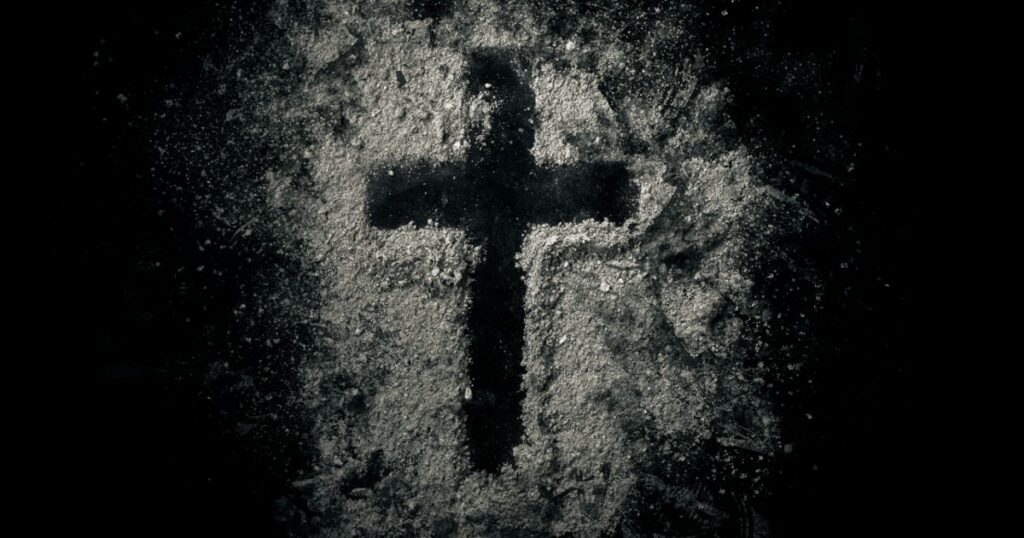Blood. Mostly what I see when I close my eyes and remember that night is blood. There was a lot of blood.
My routine recovery from a routine surgery turned to trauma in an instant when I sat up in bed and knew that something had suddenly gone very wrong. I found out afterwards that an artery next to a surgical wound had popped open. It was just one of those freak things, they tell me. One moment, I was fine; the next, I was bleeding, badly, unable to do a thing to stop it.
I’d never called 911 before. I did then. I’d never ridden in an ambulance before. I did that night, calling out a hasty “I-love-you” and “goodbye” to my kids as the paramedics carted me, already half in shock, down the stairs and out the door.
By the time I was wheeled into triage, my husband had arrived at the hospital. He stood nervously to one side as the doctors and nurses assessed my rapidly deteriorating situation and began boring high-gauge holes in my veins to prep me for a blood transfusion.
Outside, I could hear the hospital speakers: “Code Blue. Prep OR for Level 1 Trauma.” I’d heard that message dozens of times before during previous hospital visits and stays. Knowing that this time the bell tolled for me added yet another layer of bizarre surrealism to the moment.
Peace, love and wavering?
Once the IV tubing was in place and the consent forms had been hastily signed, the medical team started getting ready to roll me down the hall. I waved my husband forward. He took my hand.
“Will you pray with me?” I asked. He nodded.
He prayed for healing and comfort, for the doctors and nurses, for Christ to be present and God’s will to be done. At least, I imagine he prayed for these things. I’ve heard him pray at the bedsides of parishioners so many times before. I know his prayers. Honestly, though, I don’t remember a word of it.
What I do remember is the sense of peace and love that washed over me in a wave of golden warmth while he prayed for me. In that moment, I had zero doubt in my mind that God existed, that He was present and in control, and that He cared deeply for me.
One thing puzzled me — an involuntary thought, a passing fancy — and it has remained clearly and troublingly in my mind ever since:
But what does Jesus have to do with anything?
The thought flitted unbidden into my brain, and I had no time to deal with it then. I was on the move, rolling down the corridor as people in scrubs hustled next to me on either side of my bed. I remember the glaringly bright lights of the operating room, the cold slab of the table under my back, someone cutting away my clothes, and then …
Nothing.
Deathbed doubt
In His mercy, God brought me back. He carried me through that awful night, just as He has carried me throughout the long journey to physical and emotional healing that has followed.
But what if He hadn’t? What if I had died that night? (I certainly could have.) What if that passing fancy — what does Jesus have to do with anything? — turned out to be the last lucid thought I would ever have this side of eternity?
The entire experience was filled with trauma, but in the weeks since, I’ve wrestled with that one small moment more than any other part of it. We’ve all certainly heard of “eleventh-hour conversions,” in which a lifelong unbeliever turns to Christ in repentant faith in his dying moments. Would this have been the opposite? Eleventh-hour wavering? Deathbed doubt?
I’ve been a Christian all my life. I was baptized as a baby, raised, catechized and confirmed in the Lutheran Church. I read my Bible and pray every day, or nearly. I rarely miss a Sunday worship service, and I gladly receive the Lord’s Supper every chance I get. My life is buried with Christ; His life lives in me. I’ve weathered times of doubting and seeking before — who hasn’t? — but God has always brought me through them, back to grace.
So why, in that awful, bloody moment, did I waver? When it mattered most, was my faith really that shallow? Did I, like Peter, deny Christ at the sticking point? Did the deepest part of my soul — a part of myself I never knew about until then — calmly and clearly whisper, “I never knew the man”?
After weeks of self-examination, I can only confess that the honest answer to those horrifying questions is: Yes. My faith was and is that shallow. My soul is just that fickle and uncertain. In my heart of hearts — a part of me laid bare for perhaps the first time in that emergency room — I am no better at acknowledging Christ than Peter was when he stood around the firepit in Pilate’s courtyard.
Given this dreadful reality, then, is there any comfort for me? Can there be any hope for someone whose faith in Christ turns out to be far smaller and easier to lose than a mustard seed?
‘Jesus is thinking of me’
Soon after I got home from the hospital, still troubled by all these thoughts, I picked up Bo Giertz’s The Hammer of God and read it straight through for the first time. (If you haven’t yet read this classic work of Lutheran literature and theology, I cannot recommend it more highly.)
In Part 2 of the novel (“Jesus Only”), young Pastor Fridfeldt is called to the bedside of a dying man, Frans — a man who, like me, has long trusted in Christ and been a faithful church member throughout his life. Now, at the painful end, as Frans’ consciousness ebbs and flows, he falls prey to a troubling phenomenon: whenever he is lucid and in his right mind, his faith remains steady, but whenever his conscious mind sinks away, his sin and unfaithfulness rise to the surface. In his deathbed ravings, he curses and swears, relives memories of violence and drunkenness, and dredges up vengeful and uncharitable thoughts toward his neighbors.
“As long as he was conscious he had faith,” Fridfeldt observes. “That seemed quite evident. But beneath the thin shell of his conscious faith this evil still dwelt in his heart.”
So, did this man ultimately make the good confession and die a Christian death? Pastor Fridfeldt struggles mightily with that question.
I struggle, too. Had God not chosen to bring me back from the brink, would I have died a Christian death that night in the hospital?
The only answer that ultimately can bring peace to Pastor Fridfeldt, or me, comes from Frans himself, in words relayed by his daughter: “When I got here … I said, ‘You are thinking about Jesus, are you not, Father?’ And he answered me, ‘I’m not able to, Lena. I can’t think any longer. But I know that Jesus is thinking of me.’”
Jesus is thinking of me.
Even as I lay dazed and in shock, helpless to save myself, covered in my own blood and weakly wondering who this Jesus person was and what He had to do with anything, Jesus was thinking of me. He was loving me. His blood — the only blood that matters in the end — was covering me completely.
St. Paul writes to Timothy:
The saying is trustworthy, for:
(2 Tim. 2:11–13; emphasis added)
If we have died with him, we will also live with him;
if we endure, we will also reign with him;
if we deny him, he also will deny us;
if we are faithless, he remains faithful—
for he cannot deny himself.
My heart proved itself weak in faith in the moment of trial, but His is — as it always has been and can only ever be — faithful. Then and now, He is my Savior, and He has and will save me.
God’s faithfulness
Since that night, I’ve begun to find a measure of peace and the beginnings of a deeper, firmer faith. Throughout the days God grants me, I want to seek, and maybe even find, a more complete answer to the question that haunted me in the emergency room: What about Jesus? What does He have to do with anything? It seems like the kind of question that deserves a lifetime of study.
Whenever my life next comes near its end, I may — or may not — be better prepared. I’d like to hope that I will not falter at the last. Yet even so, I know that my eternal life is made certain not by my faithfulness, but God’s. My salvation is sealed by a cross and an empty tomb. It is finished — given to me freely by God’s grace.
When my faith wavers, I can trust this: Jesus thinks of me. Through His Word and Sacraments, Christ will keep me in true faith to the end. He will remain faithful. He cannot deny Himself.





This is something I’ve been struggling with, not just recently but for as long as I can remember. I remember being relieved when I came to the Lutheran church in my college town because it seemed I could be free from doubt due to reliance on my works. It turns out, just becoming Lutheran wasn’t going to stop my anxieties or the devil’s attacks. I still don’t know how to entirely overcome this doubt that grips my soul more often than not, but I pray, “Lord, help my unbelief” and refuse to allow doubt to ever become denial.
Thank you very much for this article, which I’m sure will continue to reach others and help embolden their faith.
Very good read. I believe we all have weak faith at times and question if we truly believe…at least I do. Satan loves to bring these doubts to us and it is only natural he will at times of weakness. Thankfully I know I am a Baptized child of God and I am His. I know in my weakness, He is always strong and holds onto me as He does all His children. I know He forgives me when I confess my weakness and in Holy Communion I receive strength to carry on my Sanctified life as I live out my days. I am babbling. You have given me much to ponder…thank you!
Lord ~ thank You for always thinking of us!
Lord we believe encourage us in our times of unbelief.
We truly are yours ~ thank you Rachel for helping us see His “foreverness”!
I am sitting here thankful for you & your family that God saw you through!
Thank you for sharing , Rachel. That was very well written and a very good insight to what is my faith doing or not doing. An eye, heart and soul awakening in my life. Thank you! May God bless and keep you until we meet again.